Safety Management
Safety means different things to different people. The dictionary offers various definitions, many of which define safety as a state of being free from the risk of harm or injury. But for aviation this definition of safety is not the best, because aircraft are built to fly and as soon as they do, they immediately exposed to risk of harm. So, for aviation we need a better definition of safety, we need to be able to tie the future into the definition.
ICAO defines safety as:
“The state in which the possibility of harm to persons or of property damage is reduced to, and maintained at or below, an acceptable level through a continuing process of hazard identification and safety risk management.”
How does an organisation achieve this state in which the possibility of harm is reduced, and is maintained at acceptable levels through a continuous process?
These words: acceptable, possibility, maintained and continuous, give us a clue.
We need a method of searching for hazards – real and potential, and when we find them we need a method of analysing them to determine if they are acceptable to us, or not, and we need to determine how to best manage those unacceptable hazards and to be able to do this process continuously.
To adequately manage safety, we need a system; which collects data, analyses it, acts on it to improve our organisation and industry; a method of ensuring what we are doing is right and effective and worthwhile; and we need to train people about safety and tell others about out work; we need a system, and this system is called a Safety Management System or SMS.
What is a Safety Management System?
A Safety Management System (SMS) is a management tool, which allows an organisation to continuously monitor, identify manage, reduce, or eliminate detectable or foreseeable hazards in a systematic and data-driven manner.
An effective Safety Management System (SMS) enables organisations the ability to minimize their exposure to risk and to manage challenges while fulfilling its safety responsibilities and complying with regulations.
How we can help
ASSET’s Technical Co-operation Unit (TCU) is the main operational unit who provide a full range of safety management services. The unit is staffed with specialist pilots, engineers, and academics.
The TCU works with industry, consulting, auditing, discussing and discovering issues that affect performance today, and potentially in the future. ASSET’s TCU audits clients—airlines, charter companies, and aerodromes—to measure their performance against international regulations and operating standards. But we don’t stop with the audit; we start with it and work with you to help you discover new ways to fly smarter, safer.
Our safety management services
Click on each tab below to find out which safety management services we provide.
- 1. Safety Policy and Objectives
- 2. Safety Risk Management
- 3. Safety Assurance
- 4. Safety Promotion and Education
Gap analysis of your Safety Management System
We will conduct a gap analysis of your organization’s current systems and processes in relation to the ICAO SMS framework requirements (or other relevant SMS regulatory requirements).
Safety Performance Standards Development
We will help you to establish your safety objectives for your SMS by developing safety performance standards in terms of:
Safety performance indicators;
Safety performance targets and alert levels; and
Action plans.
Safety Policy Review
We will help you to establish a review schedule for your safety policy to ensure it remains relevant and appropriate to your organization.
Our safety specialists can also participate and contribute to your safety review meetings.
Hazard Identification
Safety Risk Assessment and Analysis
Safety Risk Controls
Line Operations Safety Audits
We provide complete LOSA services to airlines and defence, large and small on all continents. Trust us with your full LOSA program, or book us for those individual aspects of your LOSA where you need technical or academic assistance.
Safety Audits
We provide a whole range of Safety audits. Trust us with your full safety program, or book us for those individual aspects of your safety assurance program where you need technical or academic assistance.
Quality audits
We provide a whole range of quality audits. Trust us with your full quality management program, or book us for those individual aspects of your safety assurance you need technical or academic assistance.
Safety Management XP
We provide complete LOSA services to airlines and defence, large and small on all continents. Trust us with your full LOSA program, or book us for those individual aspects of your LOSA where you need technical or academic assistance.

Our approach to safety management is cooperative; with you, we fashion sophisticated plans, new designs, tailored to your capacities and goals. We help you move beyond compliance toward elegance and excellence of operation and service, on the ground and in the air.
ASSET’s TCU (Technical Co-operation Unit) works alongside our other operational units—to share resources, information and exchange ideas. We work with our partners, ICAO and leading research institutes to gather the latest knowledge and thinking, so we can use the learnings and experience of others to pass on to you.
This is our organisational structure.

ASSET Aviation Institute’s Cooperation Research Unit (CRU) is deeply engaged in all aspects of the sector; independent; agile in thought; and oriented to the real and emergent needs of the sector and those who rely on it.

ASSET Aviation Institute’s Course Development Unit (CDU) works with ICAO and industry, using intelligence from our research and technical teams and global partners and experts, to design and build competency-based educational programs.

ASSET Aviation Institute’s Training Delivery Unit (TDU) teach Diploma, and Certificate programs in aviation leadership and management, auditing, ICAO short courses and workshops and professional development training programs.

ASSET Aviation Institute’s Professional Development Unit (PDU) combine the learnings from all of our teams, and from partner Institutions and Universities, to deliver personalised continuous development programs for our people and the industry.


